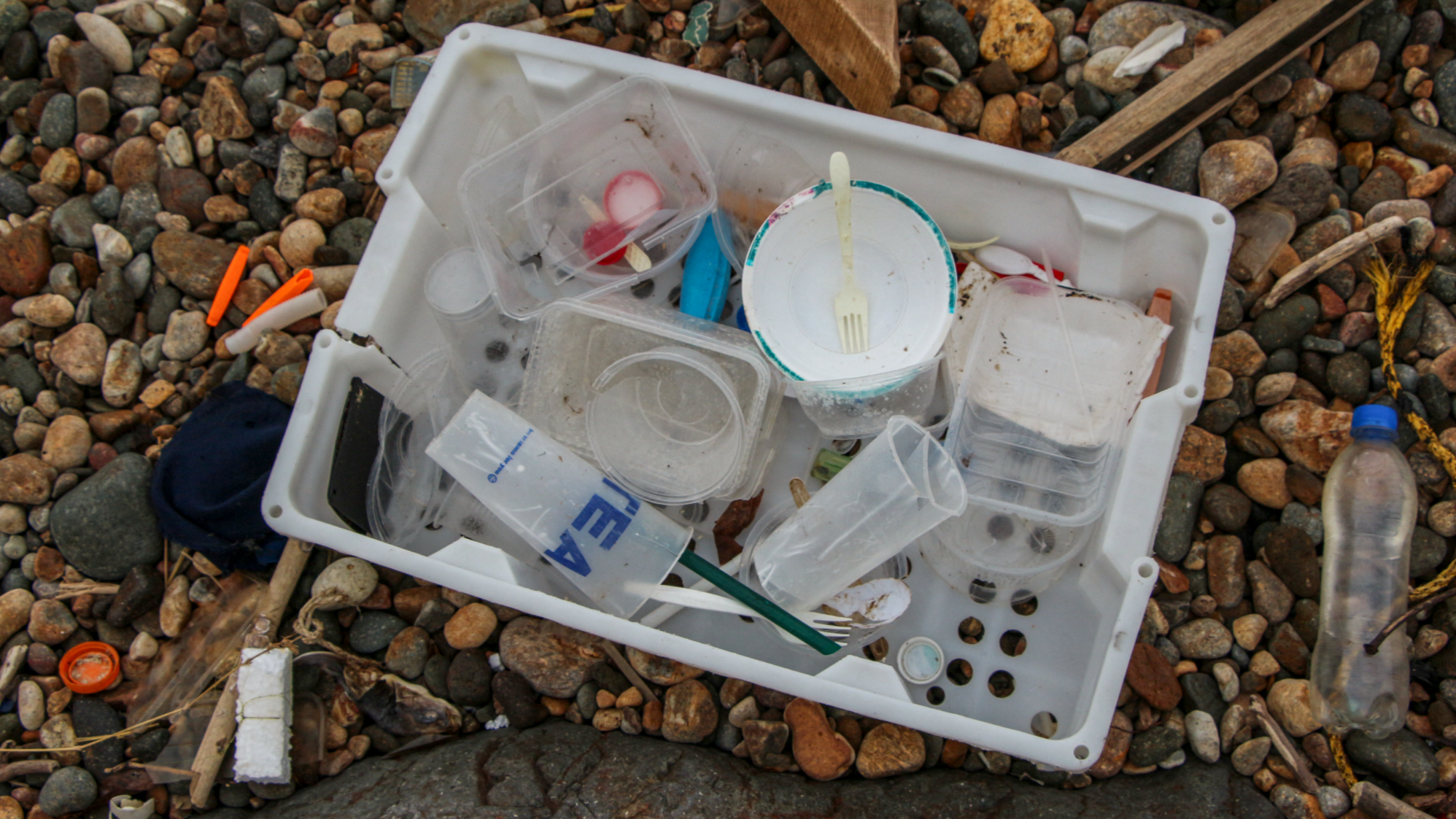
Representatives of the catering and hotel industries said on Wednesday that banning single-use plastics products is a step in the right direction, but more public education and government assistance to small and midsize businesses are necessary.
Their remarks came as the city’s restaurants and hotels are preparing to pull plastic-made knifes, straws and toiletries from their venues on Monday, when the ban kicks off.
Hong Kong plans to ban most single-use plastic products in two phases. In the initial stage, which starts on Monday, restaurants will be prohibited from offering any cutlery, straws and plates made up of expanded polystyrene — a nonbiodegradable material — for dine-in or delivery services.
Eateries will be banned from using single-use plastic cups and lids, and containers to eat-in customers.
At the same time, hotels and guesthouses will no longer be allowed to provide in-room plastic toiletries, including plastic-handled toothbrushes, nail files, and combs, as well as shower supplies packed in plastic containers. Free plastic-bottled water will also be unavailable.
Plastic cotton swabs, umbrella bags, and many other disposable products will be removed from shop shelves, and offering them free to customers will be prohibited.
The first six months will be a buffer period to give the community time to learn the new regulations, with no harsh enforcement, the government said.
The ban list is expected to be enlarged in the second phase, the timing of which has been tentatively set for 2025, the government said.
On Tuesday, more than 380 restaurants under the umbrella of local fast-food chain Cafe de Coral started using nonplastic takeaway tableware. Each set of the cutlery includes a paper spoon and bamboo chopsticks, costing HK$1 (13 US cents).
At eight of its restaurant, customers can use their own cups for drinking their beverage purchases.
Another fast-food chain, Fairwood, announced it will remove all disposable tableware effective Monday. Instead, eaters will pay HK$1 for a set of wooden cutlery, or HK$2 for a set made of stainless steel.
Hyatt Hotels Corp earlier said its hotels in Hong Kong are providing tableware and toiletries using recyclable materials.
Timothy Chui Ting-pong, who works in the hotel industry, called for increased government publicity on the new rules, especially at border checkpoints such as those at the airport. “This could save hotels from spending a lot of time to explain the rules to tourists,” Chui said.
Chui said the hotel he oversees will soon comply with the regulations by canceling room provisions such as toothbrushes, cotton swabs, and bottled water. However, he said, Hong Kong may take a page from hotels in Japan, where such supplies are provided free of charge upon request.
He said that the primary goal of implementing the regulations should be raising the public’s awareness of plastics pollution, rather than focusing solely on penalties or achieving strict targets, adding that a complete ban on certain items, such as plastic lunchboxes, could significantly inconvenience the public.
Simon Wong Ka-wo, president of the Hong Kong Federation of Restaurants and Related Trades, said it is right for the city to take immediate actions to protect the environment. But using environmentally friendly products bring additional expenses to the catering industry, particularly to small and midsize restaurants, which make up most of the city’s eatery outlets, Wong said.
He encouraged restaurant owners to procure reusable tableware instead of disposable utensils to reduce costs.
George Chen Dah Ren, co-founder and CEO of Ecoinno, a biotechnology company specializing in sustainable packaging, said the forthcoming ban has boosted sales for green tableware, but industry efforts to cut plastic products had begun even before the ban became a law.
He said reducing plastic use is an essential decision for Hong Kong, emphasizing that this trend is irreversible globally and in line with the nation’s commitment to carbon neutrality.
Chen called for concerted efforts by the government and industries to enhance public education, saying the transition will not only benefit the environment but also residents’ health.
To deepen residents’ understanding of the forthcoming plastics ban, the Environmental Protection Department has visited 20,000 small and midsize eateries in the city and held about 50 training sessions regarding the ban.
The department also established an online platform to assist the trade in procuring compliant alternatives.
“ ‘Plastic reduction’ and ‘plastic-free’ have become an international consensus in recent years, and Hong Kong also needs to keep up,” the government said.
Contact the writer at amberwu@chinadailyhk.com


